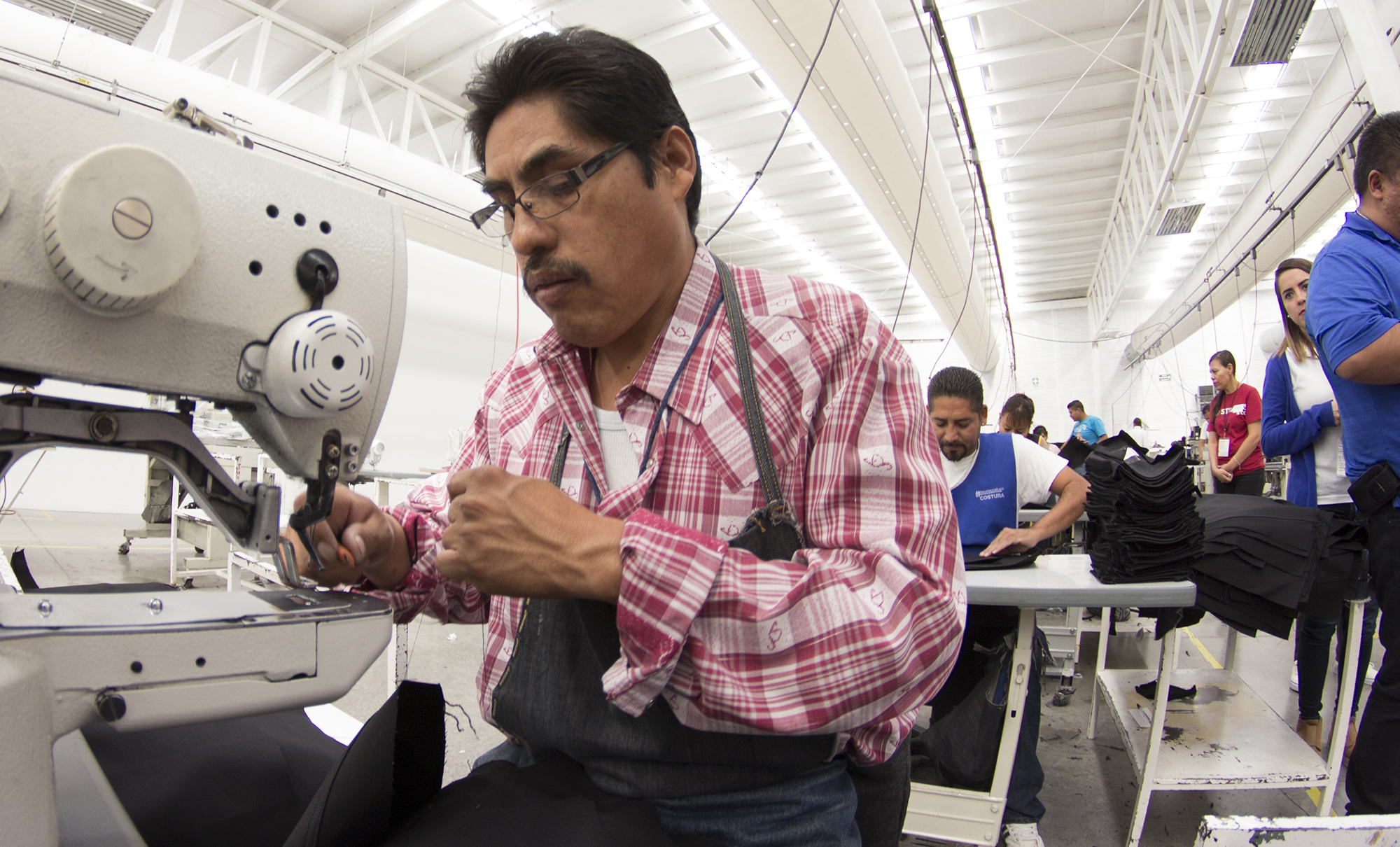Levi Strauss & Co.’s Worker Well-being (WWB) initiative, launched in 2011, aims to improve the lives of the women and men who make our products around the world with factory-based programs that address issues related to health, financial security and gender equality.
The initiative operates on the premise that when workers are healthy, satisfied and engaged at work, factory productivity will increase. In 2016, we set a new bar by making the WWB guidelines and tools publicly available to the apparel industry, and in 2017 our efforts helped LS&Co. secure a spot on Fortune magazine’s “Change the World” list.
And in May 2019, we surpassed our 2020 goal of reaching 200,000 workers – almost one full year ahead of schedule!
Today, more than 219,000 apparel workers – working in 113 of our supplier’s factories – have benefitted from factory-based programs that improve their health, financial literacy or gender equality. More than 65 percent of our product volume is now made in factories that have WWB initiatives. In 17 countries around the world, LS&Co.’s Sourcing, Sustainability and Foundation teams work in partnership to support suppliers with planning and implementation of WWB initiatives.
At participating sites, managers begin by surveying workers to understand their most pressing needs. Factories then partner with local non-profit organizations to implement programs that address the needs identified in the survey. To date, more than 90 percent of WWB sites offer health interventions and approximately 50 percent provide financial literacy workshops (some factories provide multiple programs for workers). For example, supplier factories in Bangladesh, India and other countries offer on-site female workers health trainings – covering critical topics such as nutrition, sanitation and menstrual hygiene – in partnership with local non-profit organizations.
What’s more, a majority of suppliers self-fund their own WWB initiatives — only 40 percent of factories rely on the Levi Strauss Foundation for support. Three quarters of participating factories report improvements in worker engagement, and over half report improved satisfaction and lower absenteeism.
While we are very proud of WWB’s accomplishments, we continually seek ways to deepen the initiative’s social impact. Through our multi-year partnership with the Sustainability and Health Initiative for NetPositive Enterprise (SHINE) at Harvard’s T.H. Chan School of Public Health, we are discovering new areas for attention. This multi-year study – which has connected directly with more than 13,000 workers, most of whom are women making our products in Cambodia, China, Mexico, Poland and Sri Lanka – is showing us that factories that actively cultivate trust, respect and fairness lead to improvements in gender equality, well-being and productivity. In other words, Harvard’s research shows that strengthening factory policies and systems – coupled with ongoing worker empowerment programs – is paramount for reaching our aspirations of improving worker well-being.
In 2020 we will be updating our WWB strategy and setting targets for 2025 and beyond, taking into consideration the insights gleaned from Harvard and nearly a decade of implementation. Stay tuned for further updates!







